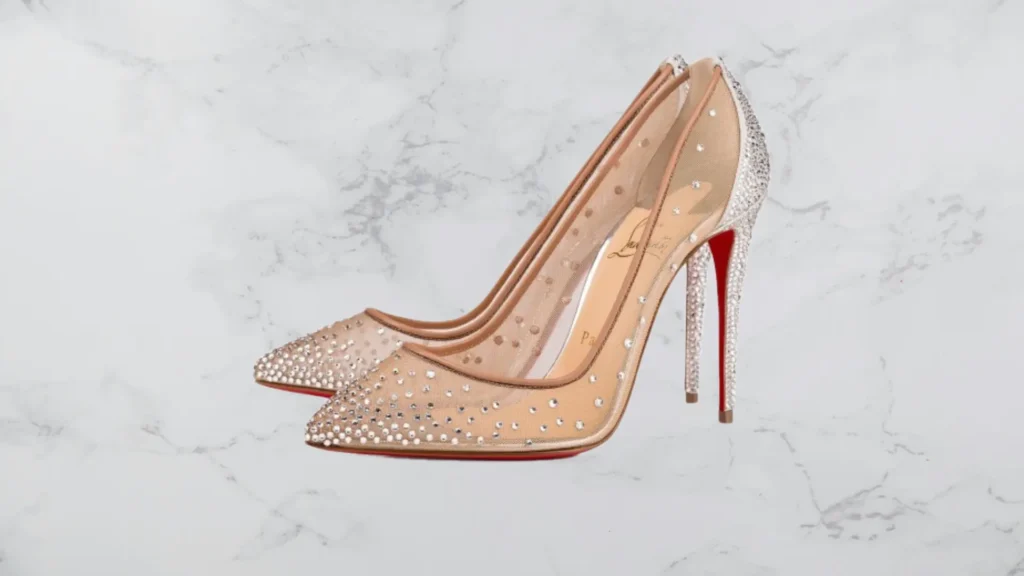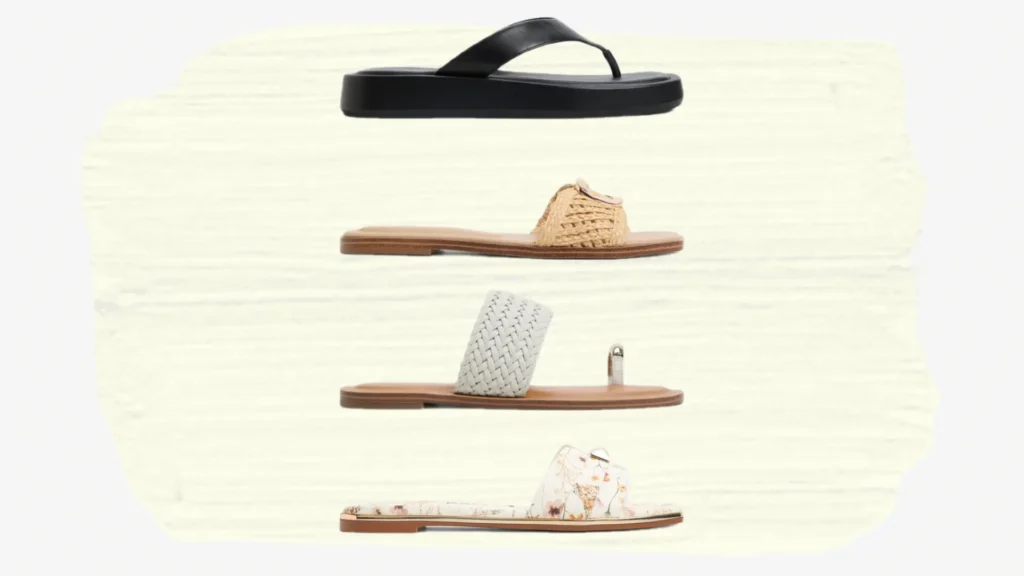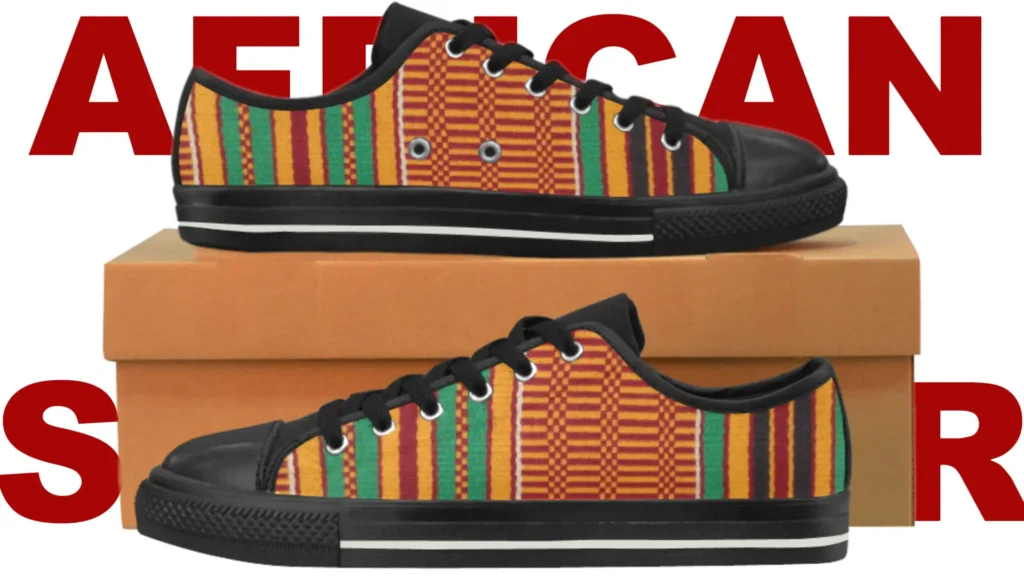Sneakers, once just athletic wear, now drive a cultural and economic phenomenon. Resale markets thrive on limited-edition releases and consumer demand. Each country’s market reflects unique economic, cultural, and logistical factors.
United States: The Sneaker Resale Powerhouse
The U.S. sneaker resale market has solidified its position as a global leader, generating an impressive $2 billion in sales in 2023. This vibrant market is driven by major StockX and GOAT, which collectively process millions of transactions each year, creating a seamless ecosystem for buyers and sellers.
High-demand sneakers, such as the iconic Nike Air Jordan 1s, command resale prices that soar up to 300% above their original retail value, reflecting the intense demand for limited-edition releases. Urban centers, particularly New York City and Los Angeles, serve as epicenters for this trading frenzy, with dense populations of sneaker enthusiasts and robust infrastructure for physical and online exchanges.
These cities host sneaker conventions, pop-up shops, and exclusive release events that further amplify trading volume and cultural significance.
American consumers are drawn to the allure of exclusivity and brand prestige, which fuel the resale market’s growth. Sneakerheads meticulously follow trends through apps of StockX, GOAT, and social media platforms, where influencers and resellers showcase rare finds and predict the next hot release.
However, profitability in this competitive market is not without challenges. High shipping costs, coupled with state-specific sales taxes, can significantly erode profit margins for resellers. Additionally, the persistent issue of counterfeit sneakers poses a major hurdle, with fake products flooding the market and undermining consumer trust.
Platforms have responded by implementing advanced authentication processes, but the battle against counterfeits remains ongoing, requiring constant vigilance to maintain market integrity.
Japan’s Sneaker Resale Market
Japan’s sneaker resale market, projected to at $5.5 billion in 2033, is a dynamic and culturally rich segment of the global sneaker industry. Japanese collectors are renowned for their discerning taste, prioritizing rare collaborations such as Comme des Garçons x Nike or Fragment Design partnerships.
These limited-edition releases can see their resale prices double or triple within hours of launch, driven by the country’s deep appreciation for exclusivity and design. Tokyo’s Harajuku district stands out as the beating heart of Japan’s sneaker culture, where vibrant streetwear shops, sneaker boutiques, and pop-up events create a pilgrimage site for enthusiasts.
The district’s unique blend of fashion, art, and music fosters a community that celebrates sneakers as both wearable art and cultural artifacts.
Japanese buyers place a premium on craftsmanship and authenticity. Resale platforms Monokabu have gained trust by enforcing rigorous verification processes to ensure every sneaker sold is genuine, addressing consumer concerns about counterfeits. However, the market faces challenges, including high import duties that inflate costs for international buyers and language barriers that complicate cross-border transactions.
Despite these hurdles, local demand remains strong, fueled by Tokyo Sneakerland and collaborations between global brands and Japanese designers. These events not only drive sales but also reinforce Japan’s status as a global trendsetter in sneaker culture.
China: A Booming Giant of Sneaker Resale
China’s sneaker resale market has experienced explosive growth, reaching a valuation of $1 billion in 2019. Nice and Poizon have emerged as dominant players, boasting millions of active users who engage in a fast-paced trading environment.
High-demand sneakers, such as Adidas Yeezy Boosts or localized collaborations, can fetch resale prices up to five times their retail value, driven by the fervor of China’s young, fashion-conscious consumers. Shanghai and Beijing serve as key trading hubs, where sneaker culture thrives in bustling retail districts and online marketplaces.
These urban centers host sneaker conventions and brand-sponsored events that attract thousands of enthusiasts, further accelerating market growth.
The rise of China’s sneaker resale market is closely tied to its youthful demographic, with Gen Z and millennial consumers driving demand through their engagement with social media influencers and WeChat and Douyin.
Domestic resale platforms have capitalized on this trend by prioritizing mobile-first interfaces, ensuring seamless accessibility for users on the go. However, the market is not without significant challenges. Counterfeiting remains a pervasive issue, with approximately 30% of resold sneakers flagged as fakes, eroding consumer confidence and necessitating robust authentication measures.
Additionally, stringent government regulations on imports, including high tariffs and complex customs processes, add layers of complexity for resellers and buyers alike. Despite these obstacles, China’s sneaker resale market continues to expand rapidly, fueled by a growing middle class and an insatiable appetite for exclusive streetwear.
Europe: A Fragmented Landscape for Sneaker Resale
Europe’s sneaker resale market has cemented its place as a significant player in the global sneaker economy. Germany, France, and the United Kingdom lead the region in trading volume, driven by a mix of urban fashion hubs and a growing appetite for exclusive footwear.
Limited-edition sneakers, such as Adidas NMDs or collaborations with high-profile designers, frequently command resale prices up to 200% above their retail value. Online platforms Klekt and Restocks have become go-to marketplaces, enabling seamless cross-border transactions and connecting buyers and sellers across Europe’s diverse markets.
These platforms leverage sophisticated authentication processes to ensure trust, catering to a fragmented yet interconnected market.
The European sneaker resale scene is heavily influenced by cultural differences across countries, which shape consumer preferences and market dynamics. In Germany, buyers gravitate toward minimalist designs, favoring clean lines and understated aesthetics from Adidas and New Balance.
In contrast, France’s market leans toward bold, avant-garde styles, with Balenciaga and Off-White resonating strongly in Paris’s fashion-forward scene. However, high value-added tax (VAT) rates, which vary by country, pose a significant challenge, eating into resellers’ profit margins.
Additionally, cross-border shipping delays—caused by customs regulations and logistical complexities—frequently frustrate buyers, leading to calls for more streamlined regional trade systems. Despite these hurdles, Europe’s diverse sneaker culture continues to thrive, supported by vibrant communities and events that celebrate streetwear and fuel demand.
United Kingdom: A Hub for Hype
United Kingdom’s sneaker resale market is a powerhouse within Europe, driven by a fervent sneaker culture centered in London. The capital city serves as a hotspot for hype-driven Off-White and Supreme, with rare Nike Dunks fetching resale prices that triple their original retail cost.
Crep Protect have carved a unique niche by integrating sneaker resale with care services, offering cleaning and protection products alongside verified transactions. This synergy appeals to collectors who view sneakers as both fashion statements and investments, further boosting the market’s growth.
London’s sneaker conventions and pop-up events, such as Crepe City, draw thousands of enthusiasts, reinforcing the UK’s status as a global hub for sneaker culture.
British youth culture, particularly among Gen Z, is a key driver of the resale market, with social media marketplaces Depop gaining immense popularity for their accessibility and community-driven approach.
These platforms allow young resellers to connect directly with buyers, showcasing curated collections on Instagram or X to build their brand. However, post-Brexit import taxes and customs duties have significantly increased costs for both buyers and sellers, complicating transactions with the European Union and beyond.
Counterfeit sneakers remain a persistent issue, eroding trust in secondary markets. To address this, platforms and retailers have doubled down on authentication services, employing expert teams and technology to verify products, ensuring the UK’s sneaker resale market remains a trusted and dynamic space for enthusiasts.
South Korea: Trendsetters for Sneaker Resale
South Korea’s sneaker resale market has emerged as a dynamic force in Asia, propelled by the country’s influential pop culture and tech-savvy consumer base. K-pop stars and popular Korean dramas play a pivotal role in amplifying demand, with endorsements from idols driving sales for New Balance,
Converse, and high-end collaborations such as Balenciaga x K-pop-inspired lines. Limited-edition releases sell out within minutes, with resale prices skyrocketing due to intense competition among collectors. Seoul, the heart of South Korea’s sneaker scene, hosts vibrant trading communities, sneaker boutiques, and Seoul Sneaker Con, which draw global attention and fuel the market’s growth.
South Korean consumers are notably tech-savvy, leveraging apps Soldout for real-time pricing and market insights, enabling them to make informed buying and selling decisions. KakaoTalk, a popular messaging app, have also become hubs for local sneaker deals, fostering a sense of community among resellers.
However, high import tariffs on international sneakers inflate resale prices, posing challenges for both buyers and sellers. Counterfeiting is another significant concern, prompting platforms to adopt advanced AI-driven tools for counterfeit detection, ensuring authenticity in a market where trust is paramount.
South Korea’s blend of cutting-edge technology, cultural influence, and passionate sneaker community positions it as a global trendsetter in the resale industry.
Australia: A Niche but Growing Sneaker Market
Australia’s sneaker resale market, though smaller than its global counterparts, is a burgeoning sector. Demand for popular models from Nike Air Max and Adidas Yeezy drives significant growth, with hyped sneakers doubling their retail price on the resale market. Sydney and
Melbourne serves as the country’s primary sneaker hubs, hosting vibrant communities of collectors and resellers who gather at Sneakerland and local pop-up shops. These cities foster a tight-knit sneaker culture, where enthusiasts share a passion for exclusive releases and streetwear trends, further amplified by Australia’s growing influence in global fashion.
Geographic isolation presents unique challenges for Australia’s sneaker market, with long distances from global supply chains leading to elevated shipping costs that impact both buyers and resellers.
Local Pushas have gained traction by focusing on verified sales and catering specifically to the Australian market, offering a streamlined alternative to international giants. Sustainability is also a growing concern among Australian collectors, who increasingly prioritize brands that emphasize eco-friendly production methods, such as Nike’s sustainable Air Max lines. Counterfeit sneakers remain a persistent issue, with buyers relying on platforms’ authentication processes to ensure product legitimacy.
Despite these challenges, Australia’s sneaker resale market continues to expand, driven by a passionate community and increasing global connectivity.
Brazil”s Sneaker Resale Market
Brazil’s sneaker resale market, valued at $100 million in 2023, is a vibrant and rapidly developing segment of the global sneaker economy, fueled by a passionate youth culture and growing urban influence.
Nike and Adidas dominate the market, with local collaborations—such as Nike’s partnerships with Brazilian designers or artists—gaining significant traction and resonating with collectors. Rare sneakers command resale prices up to 150% above retail, reflecting the growing demand for exclusive footwear.
São Paulo stands out as the epicenter of Brazil’s sneaker culture, with its bustling streetwear scene, sneaker boutiques, and Sneaker Con Brazil driving trading activity and fostering a tight-knit community of enthusiasts.
Despite its potential, Brazil’s sneaker resale market faces significant economic challenges that limit its growth. High inflation and income inequality restrict purchasing power for many consumers, making premium sneakers a luxury for most.
Instagram and X play a critical role in driving hype, particularly among younger buyers who follow influencers and local sneakerheads to stay updated on trends and releases. However, high import duties and taxes on international purchases discourage cross-border transactions, pushing resellers to focus on domestic markets.
Authentication services in Brazil lag behind those in more established markets, increasing the risk of counterfeit sneakers and eroding consumer trust. Nevertheless, the passion for sneaker culture and growing digital connectivity continue to propel Brazil’s resale market forward.
Middle East: Luxury Meets Sneakers
The Middle East’s sneaker resale market, centered in the UAE, reached an impressive $200 million in 2024, driven by a unique blend of wealth, fashion, and global influence. Dubai, in particular, has emerged as a global hub for sneaker culture, with affluent consumers chasing high-end luxury sneaker Dior, Balenciaga, and Louis Vuitton collaborations.
Exclusive drops, such as limited-edition Air Jordans or designer sneakers, can fetch resale prices up to four times their retail value, reflecting the region’s appetite for status-driven purchases. Sneaker events Sole DXB in Dubai attract international traders, collectors, and brands, creating a dynamic marketplace that bridges local and global sneaker communities.
Wealthy buyers in the Middle East prioritize sneakers as status symbols, pairing them with luxury streetwear to showcase their affluence and style. HypeBeast Middle East and The Closet have gained popularity by facilitating seamless trades and offering curated selections of high-demand sneakers.
However, high logistics costs, driven by international shipping and regional distribution challenges, can significantly impact resellers’ profitability. Counterfeit sneakers pose a persistent threat, particularly for high-value luxury releases, necessitating robust verification processes to maintain market credibility.
The Middle East’s unique combination of wealth, cultural emphasis on exclusivity, and growing sneaker infrastructure positions it as a rising force in the global resale landscape.
Africa: An Emerging Frontier
Africa’s sneaker resale market is an emerging frontier with significant growth potential, driven by urban youth and a burgeoning streetwear culture. Nigeria and South Africa lead the continent, with Lagos and Johannesburg serving as key hubs for sneaker trading.
Air Jordans and Nike SB Dunks can resell for up to 200% above retail, fueled by demand from young, fashion-conscious consumers. Local platforms Sneaker Exchange and grassroots marketplaces are gaining traction, providing accessible avenues for buying and selling while fostering community engagement through sneaker events and pop-up shops.
Economic constraints, including low disposable incomes and currency fluctuations, pose significant barriers to widespread adoption of sneaker resale in Africa. Despite these challenges, social media marketplaces have become vital tools for grassroots trading, enabling resellers to connect directly with buyers and build local networks.
Logistics challenges, such as unreliable shipping infrastructure and high costs for international deliveries, hinder cross-border sales and limit access to global markets. Authenticity is a core value for African consumers, who place a strong cultural emphasis on genuine products, driving demand for verified platforms.
As digital access improves and urban youth culture continues to grow, Africa’s sneaker resale market is poised for gradual but meaningful expansion.
Factors Shaping Global Differences
The global sneaker resale market exhibits significant regional variation, driven by a complex interplay of economic, cultural, and logistical factors that shape demand, pricing, and market dynamics. Wealthier nations, such as the United States, Japan, and the UAE, boast larger and more mature resale markets due to higher levels of disposable income, which allow consumers to invest in premium sneakers and limited-edition releases.
For instance, the U.S. market valued at $2 billion, thrives on the purchasing power of its consumers, while emerging markets, with valuations of $100 million and $50 million respectively, face constraints due to lower average incomes and economic instability.
These economic disparities create a tiered global market where wealthier regions sustain higher trading volumes and resale premiums, seeing prices for hyped sneakers soar 200-400% above retail.
Cultural influences play a pivotal role in shaping regional sneaker preferences and driving demand. In South Korea, the global reach of K-pop and Korean dramas has transformed sneakers into cultural phenomena, with endorsements from idols boosting demand for New Balance and Balenciaga, leading to instant sell-outs and resale prices doubling within hours.
Similarly, in France, a preference for bold, avant-garde aesthetics fuels demand for luxury collaborations, while Germany’s market leans toward minimalist designs from Adidas. In Africa, urban youth culture in Nigeria and South Africa drives grassroots demand, amplified by local influencers on social media.
These cultural trends not only dictate which brands and styles dominate but also fuel the hype that sustains resale markets, with Instagram, X, and Douyin serving as global amplifiers of sneaker culture.
Logistical challenges, including shipping costs and import taxes, create significant regional disparities that impact profitability and market accessibility. In Australia, geographic isolation results in high shipping costs, inflating resale prices and limiting access to global supply chains.
Brazil and the Middle East face steep import duties, which discourage international purchases and push resellers to focus on local markets. Cross-border shipping delays in Europe, exacerbated by varying customs regulations, frustrate buyers and complicate trade. These logistical barriers force local platforms, such as Pushas in Australia or Monokabu in Japan, to adapt by prioritizing regional transactions and offering localized services, tailoring their approach to address specific market challenges while maintaining consumer trust.
Counterfeiting remains a universal challenge, with approximately 20% of sneakers in the global resale market flagged as fake, undermining consumer confidence and market integrity. This issue is particularly acute in high-growth markets, where 30% of resold sneakers are reported as counterfeit, and less-developed markets, where authentication services are still evolving.
To combat this, platforms worldwide are increasingly adopting advanced technologies, such as AI-driven image recognition and blockchain-based verification, to ensure product authenticity. For example, South Korea’s Soldout platform leverages AI tools for counterfeit detection, while StockX in the U.S. employs a multi-step authentication process.
These technological advancements are critical to maintaining trust, particularly as counterfeiters become more sophisticated.
Social media is a universal driver of hype, shaping consumer behavior and market trends across all regions. Instagram, X, WeChat, and KakaoTalk enable real-time trend tracking, influencer marketing, and direct buyer-seller interactions, democratizing access to the resale market. In the UK, Gen Z buyers use Depop to curate collections, while in China, influencers on Douyin drive demand for Yeezy Boosts.
This global connectivity allows local platforms to adapt to regional preferences, such as mobile-first interfaces in China or community-driven marketplaces in Africa. By aligning with cultural and technological trends, these platforms ensure accessibility and relevance, fostering vibrant sneaker communities that continue to drive the global resale market’s growth.
Sneaker resale markets reflect a blend of culture, economics, and technology. The U.S. leads in volume, while Japan emphasizes quality. Emerging markets show growth potential. Understanding these differences helps navigate the global sneaker trade.




